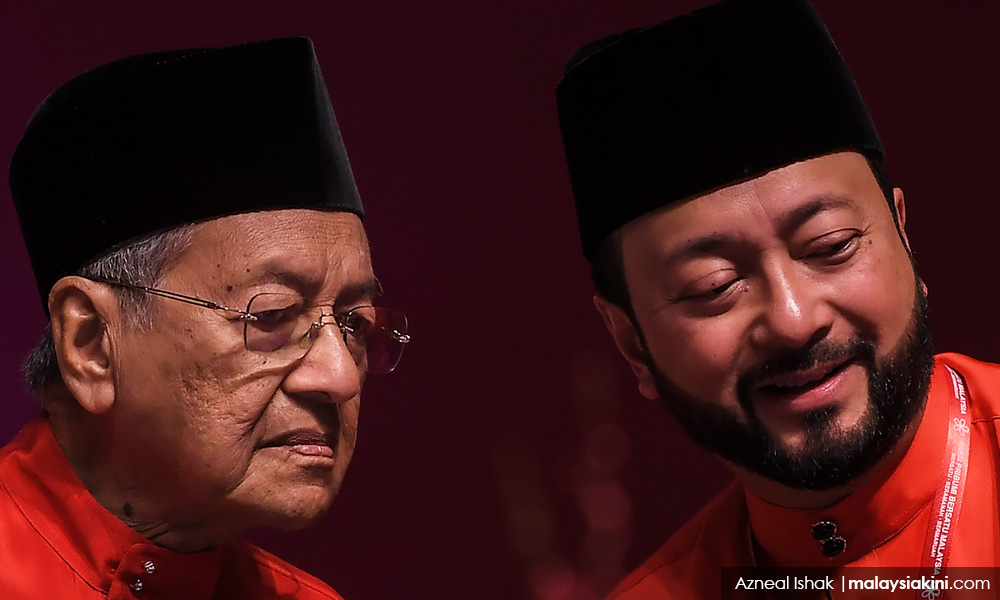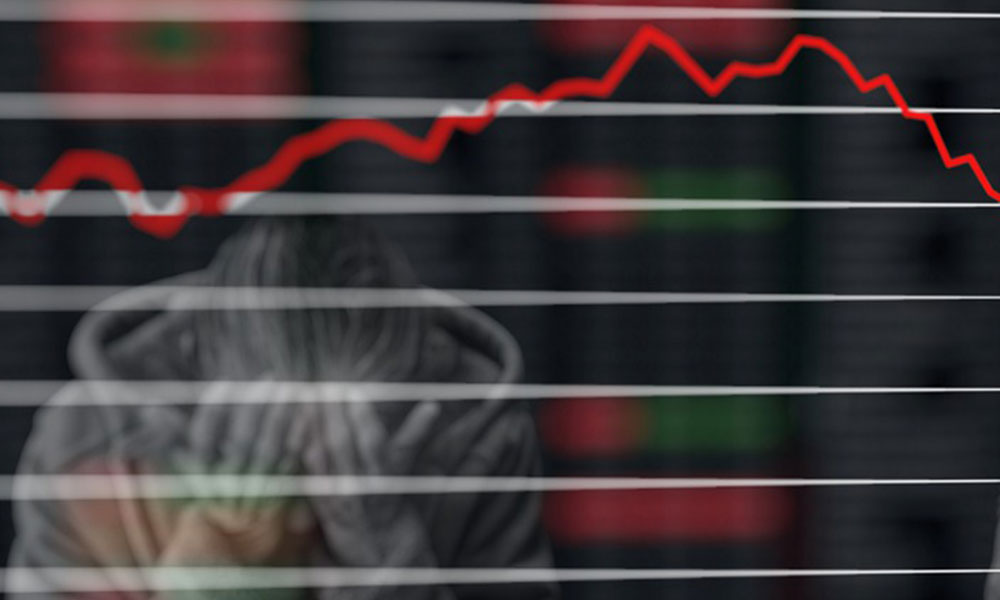COMMENT | The three scenarios Wong Chin Huat has painted, on what could happen at the one-day sitting of Parliament, are entirely plausible.
Using the pandemic as cover, Prime Minister Muhyiddin Yassin is hoping his management of the public health crisis will win him unparalleled kudos among Malaysians.
In politics, timing is everything. But sooner or later Muhyiddin will have to face his enemies. It'll be interesting to see who’ll blink first.
Wong is in a league of his own on analysing Malaysia’s electoral system. As a political-economist I don’t have optimism for what might transpire on or indeed after May 18, whether of Wong’s scenarios or if a general election were held tomorrow.
I remain cynical that Malaysia’s politics possesses the transformative power to do good things for its people. Since the 1969 race riots, and even prior, it has proved to be grievous and egregious. That’s because the country has long been bedevilled by permanent racism and corruption that reaches the apex of the Malaysian social structure.
My concern, though, is that Wong thinks – hopefully it was an innocuous throwaway line by him – that Muhyiddin has legitimacy. Here’s what Wong wrote, in two places: “Muhyiddin cannot 'do a Sivakumar' on the Dewan Rakyat Speaker Mohamad Ariff Mohd Yusof. As his own majority is fragile, any attempt to remove the speaker will only further weaken his legitimacy.”
And this: “If Muhyiddin indeed survives by buying off every government backbencher with a government agency or GLC appointment, it will be confirmed that he is both a puppet master to and a puppet controlled by the 112 fellow parliamentarians in his camp. … This will further hurt his political legitimacy and that may likely be the largest political gain for Mahathir (Mohamad) and the opposition.”
They’re valid points. But the question remains: Did Muhyiddin have any legitimacy to begin with? First, a contradiction. Wong says Muhyiddin is both a puppet master and a puppet. He can’t be both simultaneously. If he’s actively rewarding politicians to secure his position, it makes him a terribly weak politician.
Then again maybe not. Muhyiddin may try to personalise political power, as Mahathir did, but he’ll fail. An immoral regime of immoral politicians can’t enjoy legitimacy. Nor should it be accorded legitimacy by the people.
Muhyiddin is so desperate to remain prime minister that he has dug a hole for himself. A big one. He must have thought he would be boss, comfortably, until the next elections.

He'd even tried to stitch up the Bersatu elections to land a second blow to Mahathir (above, left) and his son Mukhriz Mahathir (above, right) by blocking their attendance at the party polls. Pulling back the elections at the eleventh hour illustrates Muhyiddin’s shadiness.
In addition, the regime Muhyiddin leads is totally faction-ridden. More time is wasted politicking than governing. It’s dominated by hopelessly corrupt politicians with zero credibility.
Muhyiddin’s political fate is already sealed, having surrounded himself with rightwing leaders of Umno and PAS. And he needs to constantly watch his back from the ambitious former PKR deputy president Azmin Ali who's playing his own game.
All this makes Muhyiddin a lackey of the more powerful interests of that loose coalition. That looseness is also the coalition’s inherent weakness. There’s no chance of Muhyiddin having an ounce of political legitimacy, even if he manages to contain – but not defeat – Covid-19.
He still has a very broken economy to fix, and quickly. Here, too, external factors circumscribe what he can do. In essence, Muhyiddin and his regime are stuck between the proverbial devil and the deep blue sea.
One, Malaysia is an export-dependent and primary-producing economy, but the world economy is still sliding towards deep recession irrespective of attempts by governments desperate to reopen their economies. They, too, are hamstrung despite their economic size and financial muscle.
And as long as Covid-19 stays, national budgets will take big hits but without sustained expansionary fiscal (and monetary) policy, the Malaysian economy will tank big time.

Two, Malaysia isn’t a post-capitalist democracy by any stretch of the imagination. It doesn't have the appropriate structures and institutions that would allow it the kind of politics that would cast upon its leader aspirations of genuine legitimacy.
Even if Muhyiddin wins the 15th general election in 2023, he won’t win broad legitimacy. He’ll be remembered for his betrayal in 2020, for singularly, being in cahoots with Azmin, for stealing a perfectly legitimate political mandate by voters. This puts another nail in the Muhyiddin coffin. But it also opens the trapdoor for Umno and PAS to launch an internal coup d’état.
Three, while Malaysia is capitalist, it’s not a liberal capitalist state. And its capitalism isn’t “organised”. It's disorganised because socio-economic groups in the economy, state and civil society are deeply fragmented through deliberate state actions. Despite industrialisation, its capitalism is still ersatz.
So understandably Malaysia’s politics operates along the spectrum of a primitive-traditional social order with pretensions of being “modern”. Super highways and glass towers don’t mean a thing. Beneath their veneer lurks deception of sorts founded in pervasive patron-client politics and profoundly rentier capitalism.
Which is where Mahathir comes in with his attempt to remove Muhyiddin. Nothing fundamental will change. If anything Mahathir will continue where he’d left off in 2003, as he did 2018-2020.
Wong is right in his implicit argument that Muhyiddin may be sloppily playing into Mahathir’s hands. But Mahathir, too, never really enjoyed political legitimacy previously. Nor will he the next time if he wins the no-confidence motion in Parliament or an election.
How can he when he has fathered racism, corruption, cronyism, nepotism and autocracy? All of these elements today underscore the “Malay-first” Muhyiddin and his frantic attempts to shore up his position in the hope it’ll land him the legitimacy he doesn’t have, and may never get.
Muhyiddin and Mahathir are cut from the same cloth. Neither are trustworthy. Muhyiddin mustn’t be allowed to continue as PM, and Mahathir mustn’t be allowed to become premier again. There has been enough idiocy after 63 years of false dawns, including the populist drivel of Malaysia Baru.
The same goes for PKR leader Anwar Ibrahim. He’s weak, indecisive, callous, a pretentious Malay liberal who blows hot and cold. He’s been loud on “reformasi” but, as the last election proved, he had nothing to show for it.
Never mind he wasn’t a cabinet member in the Pakatan Harapan regime but his regular summits with Mahathir gave the illusion he was destined for greatness. That was all that was – a grand illusion underpinned by his own grand delusions.
The road ahead for Malaysians is more than fraught. It’s ugly. And it's dangerous as the state ramps up structural racism. There are no credible Malay politicians – only a Malay can be prime minister and deputy prime minister – to count on and for whom legitimacy can be automatic. Their zero legitimacy is born of these politicians’ known – and still unknown – perfidies etched in the edifice of their race and religion.
MANJIT BHATIA reads economics and international politics in New Hampshire in the US.
The views expressed here are those of the author/contributor and do not necessarily represent the views of Malaysiakini.
Keep up with the latest information on the outbreak in the country with Malaysiakini's free Covid-19 tracker.
Malaysiakini is providing free access to the most important updates on the coronavirus pandemic. You can find them here.
Help keep independent media alive - subscribe to Malaysiakini.

